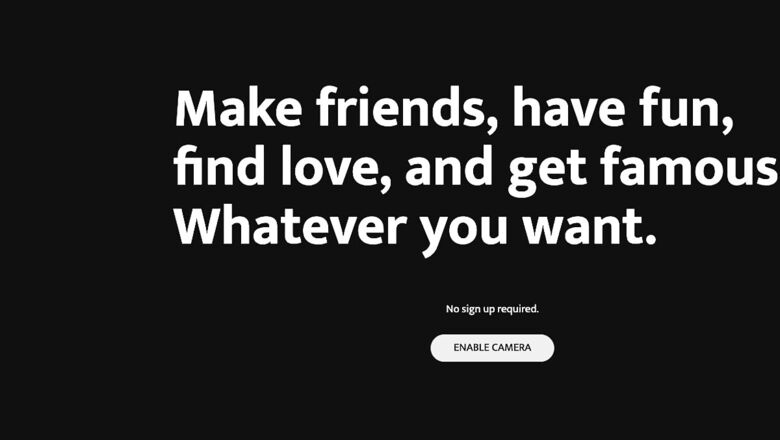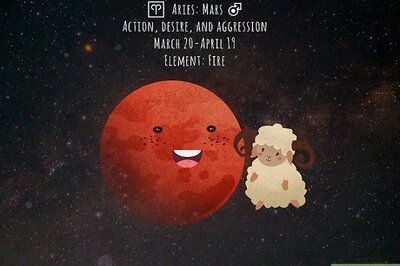
views
Not all of us probably remember Chatroulette. My first bump-in with it was at a college party almost a decade ago. Back then, the internet was pretty much the wild, wild west – literally everything was okay to go on the web, aspects of AI and moderation were non-existent, and most of us had never reckoned the term ‘social media’ to be of particular relevance. That was the time when Chatroulette was arguably a thing, at least until ravaging complaints of uncontrolled nudity from its users took it down, step by step. Now, a report from The Wired suggests that like everything around, Chatroulette too is climbing the AI ladder to claw back its users.
However, available data suggests that Chatroulette’s reappearance on the internet radar might not be a direct impact of the Artificial Intelligence messiah. Instead, it is most likely an impact of the Covid-19 pandemic, which sent all us social beings into reclusive hidings. The narrative fits well, too – Chatroulette is a service that literally panders to those who want the random social experience. On paper, it’s not about nudity. Instead, Chatroulette can be a service that lets you meet strangers whom you otherwise won’t – a bit like hitting it off with a random person at a coffee shop, whom you had to talk to because you had to share a table.
The Wired report states that Chatroulette has been steadily embarking on a redemption journey, well before the pandemic broke out. In 2019, the company strategised to bring in executives with expertise in content moderation, psychology and machine learning. This sparked off a new version of Chatroulette, one that eventually led to the creation of a “recommended” channel called Random Chat. The service labels its intent with this channel by slapping the words “Nudity = Ban” right underneath it. To do this, in June 2020, Chatroulette hired Hive to use its AI algorithms to automatically detect nudity and other kinds of objectionable profanity on the platform, and ban users basis this data.
However, numbers suggest that Chatroulette’s growth in users may not be a direct impact of its rebranding exercise. A report by Gizmodo cites that traffic on Chatroulette spiked during the months of February to July 2020, when lockdowns due to Covid-19 started around the world. This traffic spike brought activity on the service up to 4 million active users – the highest in over four years for Chatroulette. This info contrasts with Chatroulette premiering its AI efforts in June, and traffic on the site being somewhat stagnant through the months – data from SimilarWeb states that it registered 3 million hits in November 2020. This suggests that the growth for the platform was possibly pandemic-related, and not a direct impact of it cleaning up its platform.
Going forward, founder-chairman Andrey Ternovskiy has stated in interviews that he plans to have Chatroulette clean up its nudity and regulation issues within the next one year. He has already made initial moves – for instance, offering a ‘Chatroulette for conferences’, where users can randomly bump into fully-clothed strangers in hope of building networks in the pandemic world. It is then that we will find if Chatroulette is actually poised for growth in the coming weeks, or if this was a short-lived burst of fortune at a time when the world was starved of social interactions. One thing’s for sure, though – whatever Chatroulette does, it will likely not have the same impact as it did back in the early 2010s.
Read all the Latest News, Breaking News and Coronavirus News here



















Comments
0 comment